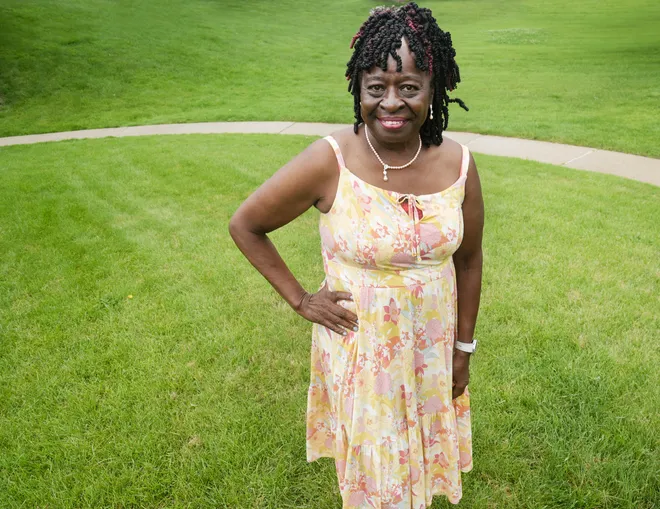Wisconsin voter ID law still causing confusion, stifles turnout in Milwaukee, voting advocates say
Share
Explore Our Galleries
Breaking News!
Today's news and culture by Black and other reporters in the Black and mainstream media.
Ways to Support ABHM?
Molly Beck and Rachel Hale, Milwaukee Journal Sentinel

Nearly a decade ago, Wisconsin traded its designation as one of the easiest places to cast ballots for stricter voting rules that set off a still-ongoing debate over voter access.
The implementation of a state law that requires voters to show photo identification increased ballot security, Republican authors argue, but the side effects have disproportionately hit Black voters in Milwaukee who are more likely not to have a photo ID and less inclined to seek one than their white peers, experts and advocates say.
“You don’t realize the effect it has on you until it happens to you,” Anita Johnson, who has spent the last eight years helping Milwaukee voters navigate the state’s voter ID law, said in an interview. “And then you’re like, ‘Do I want to go through this? I mean, is this really worth it?’ It really stops people from voting.”
[…]
Since the state’s voter ID law survived a number of legal challenges and went into effect for the 2016 presidential election cycle, a host of studies and advocacy groups have popped up to study and help voters navigate the law.
Their findings show a drop in accessibility that began in 2012, when Republicans took control of state government, and accelerated after the voter ID law became practice.
Keep reading to learn how thousands call the law a barrier to voting.
Some have been trying to bar Black voting since Reconstruction.
Comments Are Welcome
Note: We moderate submissions in order to create a space for meaningful dialogue, a space where museum visitors – adults and youth –– can exchange informed, thoughtful, and relevant comments that add value to our exhibits.
Racial slurs, personal attacks, obscenity, profanity, and SHOUTING do not meet the above standard. Such comments are posted in the exhibit Hateful Speech. Commercial promotions, impersonations, and incoherent comments likewise fail to meet our goals, so will not be posted. Submissions longer than 120 words will be shortened.
See our full Comments Policy here.









[…] The voter ID law, which was upheld after facing multiple legal challenges, went into effect during the 2016 presidential election cycle. Since then, numerous studies and advocacy groups have emerged to help voters understand and work around the law. Their findings highlight a decline in voting accessibility that started in 2012, when Republicans gained control of the state government, and worsened after the voter ID law was implemented. Source: ABH Museum […]